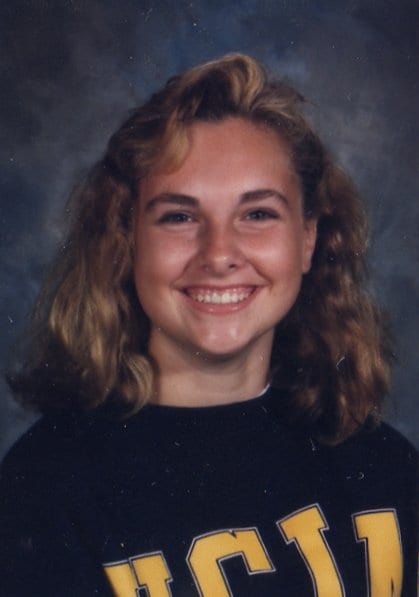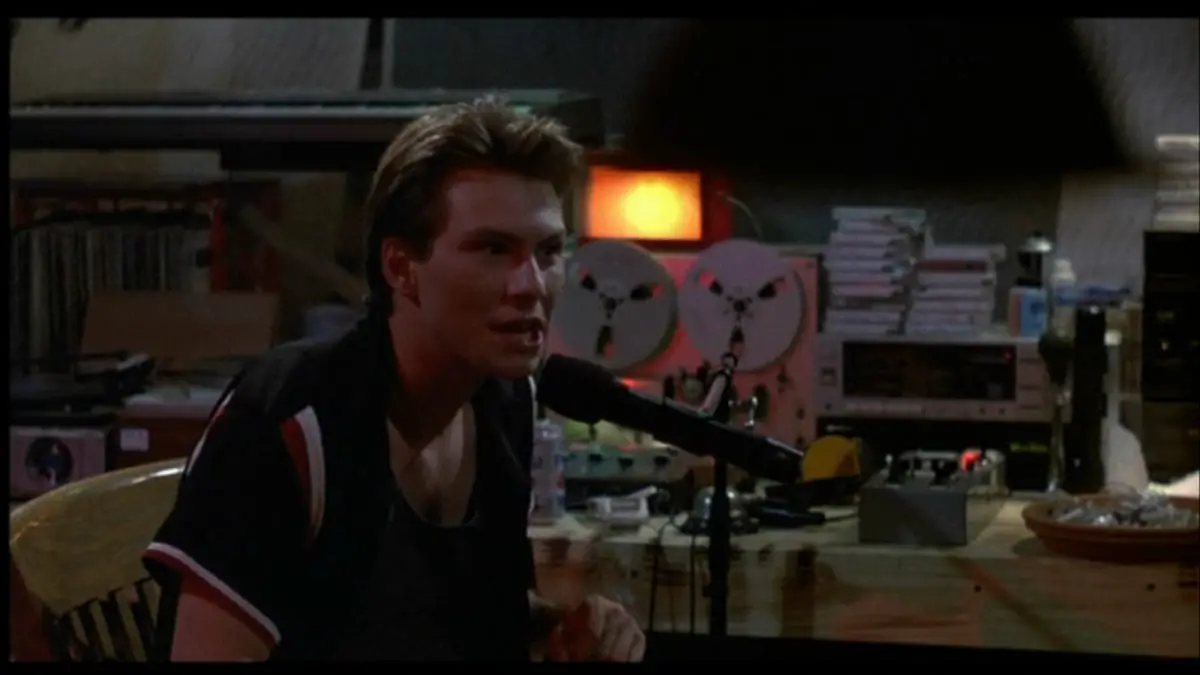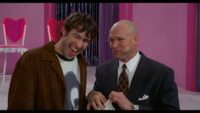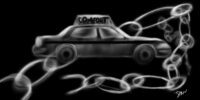At the time Allan Moyle’s Pump Up the Volume was released in 1990, the world was a very different place and we Gen Xers were very different people than we are now. I was 15 years old, and lived a very different life than I do now, running a radio newsroom. I’ll write a section of this article before rewatching the film, and a section after, remembering what it meant to me then, later reflecting on the film from the perspective of a 44-year-old in 2020.
Before the rewatch, a time warp
Oh, how I loved this movie!
What was life like for me in 1990? I went to a convent for school. More accurately, it was a Catholic, all-going day school with a convent on the campus and a couple of nuns as teachers. My family wasn’t Catholic, but my mom like the values I appeared to glean from an ultra-conservative school. For tenth grade, I convinced my mom that academically I was doing great, but I could use socialization with boys my age as a tool to succeed in life. Long story short, those “socialization” sessions often occurred in the family hot tub while my parents were at work. Sometimes in the back (or front, for that matter) of someone’s car, or at a local park, I was all about “socialization” with the boys my age. After one year of “socialization” and one pregnancy scare later, I was back at the convent.

These were teenage days and nights marked by long phone calls with friends and boyfriends, three-way phone call ambushes, and above all, angsty music revelations. Just outside of Seattle in 1990, age 15, it was suddenly considered cool to be uncool. Grunge was becoming a thing. Sneering at the social elite and scoffing at big hair garnered nods of recognition among the kids who smoked cigarettes and drank their parents’ liquor. This was the epicenter of Generation X’s trademark rebellion via cynicism and rejection of society.
This was also the time of amazing mullets, big hair that was just starting to shrink in size, the OG 90210, Saved By the Bell, mall singers, and all kinds of white bread, homogenized, white people nonsense. I loved those things back then. I really did. I mean, Axl Rose was still extremely cool. Twin Peaks had given us respite from a lot of this, but it was about adults, with adults who looked like adults playing teenagers.
And then there was this film that started with, “Ever get the feeling that everything in America is completely f*cked up?”
Move over, Brat Pack: here comes a new batch of American kids. Judd Nelson paved the way for them in The Breakfast Club. I’m talking about Winona Ryder, Shannen Doherty, and all the other anti-Heathers. Of course, what would an anti-Heather be without the likes of Christian Slater? Didn’t hurt that he was really attractive in a non-threatening way.

I first watched Pump Up the Volume with a group of friends, either at Crossroads or Factoria, two of the local mall theaters we frequented. This was 1990. There was no internet.
Pump Up the Volume gave voice to that longing. Christian Slater’s character Mark and his rogue shortwave radio persona Happy Harry Hard-On spoke the words we all wanted to hear. After two viewings of the movie, I painted the back of a denim jacket white and wrote in sharpie:
Everything decent’s been done. All the great themes have been used up. Turned into theme parks. So I don’t really find it exactly cheerful to be living in the middle of a totally, like, exhausted decade where there’s nothing to look forward to and no one to look up to.
Deep, right? Well, to teenage Jill, yes. It was hard to be cheerful, and refreshing to hear someone give the reasons I felt it was so difficult.
Then there was the music. The soundtrack (official and unofficial) to this movie introduced me to Leonard Cohen, Beastie Boys, The Pixies, Henry Rollins, Concrete Blonde, and Cowboy Junkies, all of whom are still on heavy rotation in my car. Mainstream radio was reserved for adults, and those adults chose the programming for us. As a teenager, I often felt patronized by the programming that targeted me. I couldn’t care less about top 40 music. Of course, as a teenager, I felt music was part of my identity. I longed to be understood and felt music could amplify my out-of-control emotions enough to be heard and seen.
In short, this was a film that gave my generation visibility, and affirmations that yes, the world we lived in really was f*cked up. It showed, from a teen perspective, things like teen pregnancy, suicide and depression, sex, and social dynamics in high school. Our parents and teachers really didn’t understand us, but we were not alone. Christian Slater cracking wise in a basement validated the despair and overwhelming loneliness we all experienced. Someone understood us and wasn’t afraid to look our pain in the eye.
Harry spoke straight to that pain:
We’re all worried, we’re all in pain. That just comes with having eyes and having ears. But just remember one thing—it can’t get any worse, it can only get better. High school is the bottom, being a teenager sucks, but that’s the point, surviving it is the whole point. Quitting is not going to make you stronger, living will. So just hang on and hang in there.
I haven’t seen this movie since I was maybe 20 years old. I remember renting it with a roommate, and we both still liked it. Maybe we weren’t as angsty, and I had become one of those adults who worked at a radio station, but there was still recognition of the lack of meaning in our lives, the idea that there was still “nothing to look forward to and no one to look up to.”
After the Rewatch, kind of sad
“You’re the voice. You’re the voice you were waiting for.”
– Nora DeNiro
The main thing that sticks with me now, at age 44, is that these kids had no voice. Even as the school principal pulled off some shady expulsions to keep her school’s test scores higher, nobody would listen to a teenager.
Hard Harry spoke to them, he read their letters on his illegal radio show, giving them the chance to be heard by others. In the days of ubiquitous popular teen YouTubers, podcasters, blue checkmarks, and other social media platform stars, it’s difficult to remember a time when calling out authority figures just wasn’t possible.
It’s clear that what spoke to teenage Jill was the idea of not only having a voice but giving a voice to others who might have something to say. That’s part of why I chose a career in radio. Not because of this film, exactly, but because of the helplessness we all felt as teenagers in the 1990s.
At the end of Pump Up the Volume, Harry/Mark encourages his listeners to “steal the air.” Then we hear voiceovers of teen pirate radio shows. It’s a win, right? Everyone has a voice. Given the state of things in the world since the internet arrived and gave everyone with access a level playing field to use those voices, I find myself questioning whether Harry’s intent was misguided.

When everyone has equal access to produce and consume media, the same authorities, liars, phonies, and cheats he fought are still the loudest voices. Malcolm, the character who committed suicide, would likely be bullied right off of Twitter if he’d asked whether he should kill himself. The unnamed “punk” kid who was wrongly expelled would still face insurmountable bureaucracy should he try to re-enroll in school. The pregnant teenager might fare better in present-day, but all of these kids’ cries for help would still be out-shouted by the likes of Kanye and the Kardashians.
Now we have millions of people “to look up to,” as Harry yearned for in the ’90s, but so often, the ones we look up to aren’t going to provide us with the fulfillment he implied they would.
The message Harry/Mark shouts at the end calls for a healing for the world:
You know, I know all about the hating and the sneering. I’m a member of the “why bother” generation myself. But why did I bother to come out here tonight, and why did you? I mean, It’s time. It’s begins with us, not with politicians, the experts or the teachers but with us. With you and with me. The ones who need it most. I gotta believe, with everything in me, the whole world is longing for healing. Even the trees, the earth itself are crying out for it. You can hear it everywhere.
A beautiful message, and one that deserves to be shouted from the mountaintops until it’s heard and felt in the bones of every resident of the planet. I just wish Harry’s idea of giving everyone a platform and an audience could be the solution and the salve to the cries of pain that go unheard. I don’t know what the answer to this problem is, but I am sure it’s bigger than a baby’s arm.





Fellow Seattleite here – as I recall, I saw this at Luxury Alderwood Cinemas, and both the movie and the soundtrack left a huge mark on me. Thanks for this.